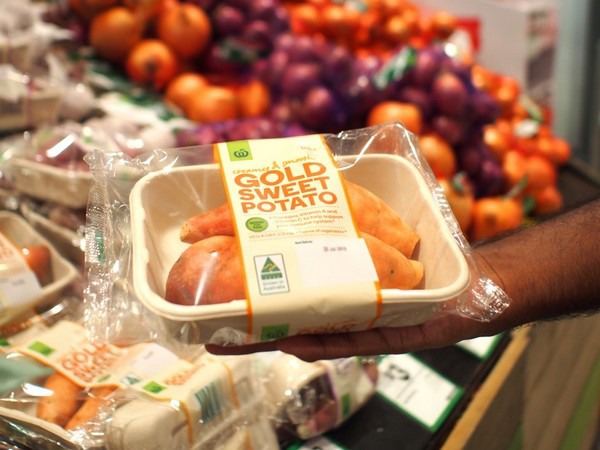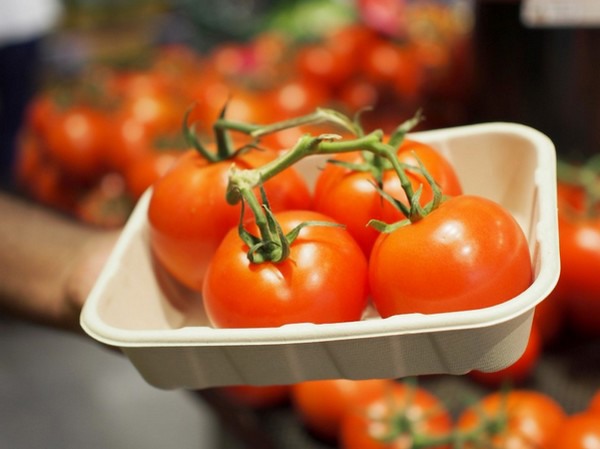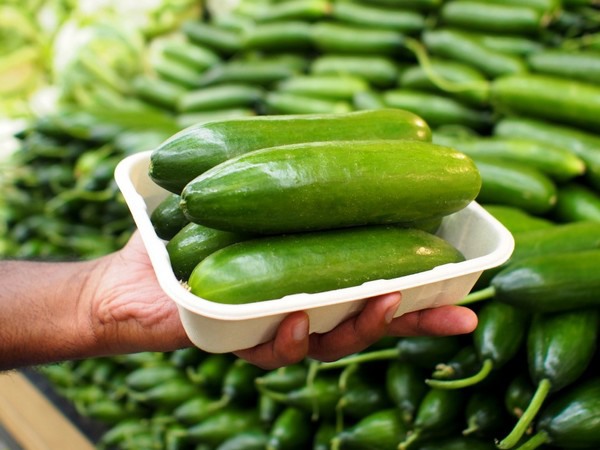As the fresh produce industry moves to become more sustainable growers, packers and retailers are looking for alternatives to plastic packing. This is not simple, as fresh produce puts many demands on its packaging. It has to be sturdy to protect the product, it has to be moisture repellent and able to withstand the rigours of the cold-chain and lastly it has to look good for the consumer.
The vast majority of BioPak’s products are for the food service industry, but they have introduced a line of sugarcane pulp also known as bagasse trays to serve the fresh produce industry.

“We have a good relationship with Woolworths, who are always looking for ways to improve the sustainability and environmental credentials of their range,” explains Jon Owen from the company. “A few years ago, we started working with Woolworths to see if sugarcane pulp would work for the fresh produce industry.
“We developed a range of trays with them in mind in close consultation with their growers and packers. Now it is really taking off and is one of our biggest growing sectors. There are a few reasons for this, every supermarket in Australia, probably in the world has sustainability targets and legislative changes to meet. By 2025 in Australia all packaging has to be recyclable, reusable or compostable. There are also a lot of market forces in play but the biggest one is consumer attitude, now more than ever, consumers are looking for more sustainable choices.”

BioPak’s trays are made from sugarcane pulp, also known as bagasse. Sugarcane pulp is derived from sugarcane, it is a by-product of sugar manufacturing, so they are using a waste product and making something new and sustainable from it.
“We manufacture our produce trays in China, where sugarcane pulp is readily available and a by-product of the sugar industry. In addition, all BioPak products are carbon-neutral, which means that greenhouse gas emissions related to the lifecycle of our products, as well as our organisation, have been offset.”
The sugarcane pulp is pressed under high pressure with steam so it gets a very tight surface making it moisture repellent and it can be used in both chill and ambient environments, it can be frozen, oven-heated and microwaved.

The tray can take shrink wrap and flow wrap and it can also be heat-sealed which means using much less plastic for sealing.
“It’s a natural alternative to plastic, our trays are certified home compostable to Australian and European standards. The incremental cost is negligible, and it can actually be seen as a value add now. We hear from a lot of growers who use this in their pitch to supermarkets; saying not only have I got a great product but it’s in great packaging.”
BioPak are active in Australia, New Zealand, Singapore and the United Kingdom, the company is part of Duni Group, a Swedish packaging company, so now have access to all of their markets, including Europe.
For more information:
Jon Owen
BioPak
Tel: +61 2 8074 8289
Email: jon@biopak.com.au
www.biopak.com
